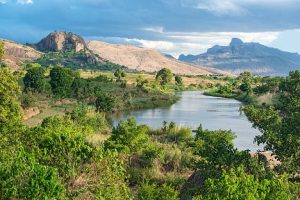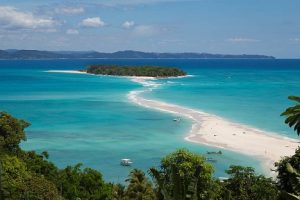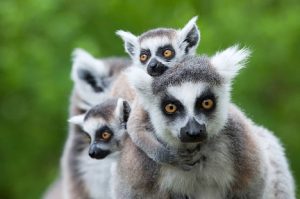


 Tonga soa! Welcome to Malagasy, a language spoken by 25 million people in Madagascar and the Comoro Islands. Madagascar is the oldest island and the 4th largest island in the world, located 250 miles off the coast of Southern Africa. The isolation and the position of the island in the tropics has allowed plants and animals on the island to evolve in relative isolation, making it an important place of study for biologists, ecologists, and conservationists.
Tonga soa! Welcome to Malagasy, a language spoken by 25 million people in Madagascar and the Comoro Islands. Madagascar is the oldest island and the 4th largest island in the world, located 250 miles off the coast of Southern Africa. The isolation and the position of the island in the tropics has allowed plants and animals on the island to evolve in relative isolation, making it an important place of study for biologists, ecologists, and conservationists.
Fall (Click for course flyer)
Malagasy 101/701. MW 3:05-4:20. Taught online, with occasional in-person meetings.
This course introduces students to the Malagasy language, spoken by 25 million people in Madagascar and the Comoro Islands. Students will learn to speak, listen, read, and write basic Malagasy, as well as learn to function appropriately in routine situations in the target culture. Taught in Malagasy. No pre-requisite.
Malagasy 203/703. MW 1:25-2:40. Taught in a hybrid mode, a mix of Zoom and in-person meetings.
Spring
Malagasy 102. This course continues the elementary sequence, introducing students to the Malagasy language. Students will learn to speak, listen, read, and write basic Malagasy, as well as learn to function appropriately in routine situations in the target culture. Taught in Malagasy. Pre-requisite: Malagasy 101 or equivalent.

Faculty: Tendry Randriamanana holds a PhD in Biology and Environmental Change, making her an exceptional match for the graduate students who often enroll in her Malagasy language courses. She worked as a postdoc in Finland, and taught Malagasy online for several years before moving to the US in 2022. She is currently participating in a professional teacher training program with Michigan State University, through a LCTLs grant. Tendry joined the Duke teaching faculty in 2022, and is developing a
Malagasy Studies program on campus ; this semester, she received a grant to develop a speaker series with Madagascar’s leading artists and thinkers. Tendry is passionate about sharing Madagascar culture!
